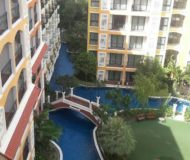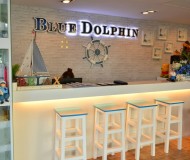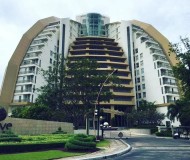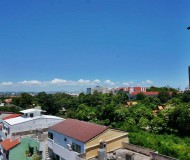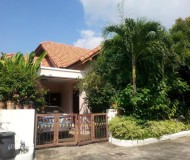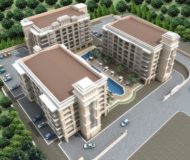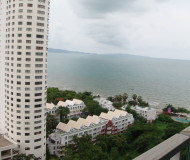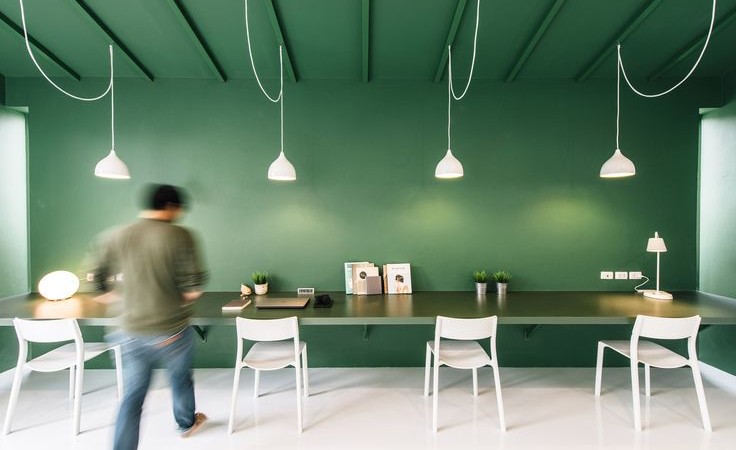
Bangkok’s Commercial Real Estate Is Going Green
Bangkok’s Commercial Real Estate Is Going Green
A few years ago, the Ministry of Energy and the PTT changed their located to a more modern, highly developed 300,000 m2 office complex called The Energy Complex. This building was the first to have LEED certification labelling it a “green building”, with the highest possible level – Platinum Level.
After six years of that great achievement, the amount of LEED-certified buildings in Bangkok, Thailand has gone up to ten; at the same time a dozen more projects, which include retrofitting some existing buildings as well as the interior of new offices and retail shops, and industrial properties also have the LEED certification of approval.
Developers, investors, corporate residents together with retail shops have decided to “go green” and everything seems to show that more companies will follow suit and adopt the green standards for their buildings.
What do “green buildings” imply?
A “green building” is one that is designed, be it a new prohect or a retrofit, in order to bring down levels of water and energy consumption, produce beneficial indoor spaces, and also to broaden objectives or policies connected to sustainability that companies might have.
LEED is the worldwide standard certification for “green buildings”. LEED means “Leadership in Energy and Environmental Design”. The US Green Building Council created this certification scheme in the 1990s and for more than twenty years, several countries worldwide have established their own “green building” standards. These include the TREES in Thailand, BCA Green Mark in Singapore, BREEAM in the UK and Green Star in Australia.
Those buildings that want to be LEED-certified are assessed on more than 100 categories such as water efficiency, innovation, location, energy usage, indoor air and environmental quality and building materials.
Buildings are given the LEED certification depending on the scores they receive in each of the assessment categories. The “greenest” or highest scoring building receives the Platinum certification. The other possibilities include Gold, Silver and Certified.
Why is green the new trend?
Big national companies in Thailand are setting new trends in the office market of Bangkok. Two companies associated with Charoen Sirivadhanabhakdi, Goldenland Development Plc and Univentures Plc have created three office buildings amongst the best in the world that are LEED-certified, namely Park Ventures Eco-Plex (Platinum), Sathorn Square (Gold), and FYI Center (Gold).
The three projects are LEED-certified (instead of choosing the national TREES programme) due to the fact that multinational residents and investors consider LEED to be the global standard; something that makes them stand out from the crowd and take the lead in the competition.
Managing director of Univentures REIT Management, Urasate Navanugraha said that they have the feeling that LEED certification is of upmost importance to tempt and retain world-class companies like Stanford University, Google, Mizuho Bank and Canon.
Corporations like Kasikornbank (KBank) and the Siam Cement Group (SCG) have included the idea of a “green building” and have turned it into the focus of attention of their corporate principles.
The brand new headquarters of Business Technology Group in Nonthaburi have been LEED-certified not long ago. Achieving this certification happens after having received a Gold award for the head office of Phahon Yothin Road and another Gold award for a learning complex in the province of Chachoengsao.
SCG received Gold LEED certification after retrofitting three of its buildings it owns at the Bang Sue complex. In 2014, the same company and the same building received Platinum LEED certification for its 100th anniversary celebration.
A majority of Thai companies want to “go green” to give strength to their goals of corporate social responsibility, also to tempt both companies and investors who believe in a sustainable and stimulating workplace, and to improve the value of a property by adding higher quality features that will make it future-proof.
Simultaneously, several European and American residents have tried to obtain a LEED certification for their offices, mainly to comply with corporate policies worldwide relating to employees’ welfare, sustainability and CSR.
The first multinational to be awarded a Gold LEED certification was Citibank. The new office interior has recently got LEED-certified. The next to receive the certification were the United States Agency for International Development and Unilever.
Big multinational residents such as Krungthai-AXA Insurance, are seeking to work in new projects that get LEED-certified instead of working with the traditional projects. JLL is optimistic that this new trend will dominate.
Will the impulse last long enough?
At present, “green buildings” like the ones that have LEED, TREES and BCA Green Mark certifications represent approximately 5% of the wide market of office investment in Bangkok.
Nowadays, JLL is following over 40 possible office projects for the future, and 25% of those have already sent their designs to be LEED-certified.
Apart from that, JLL hopes that no less than an extra 30% of the future provision will receive some kind of “green” certification, as established by investors. In other words more than 50% of the city’s future provisions ought to be “green”.
Keywords/phrases – Green Building, LEED, Thailand, Bangkok.
